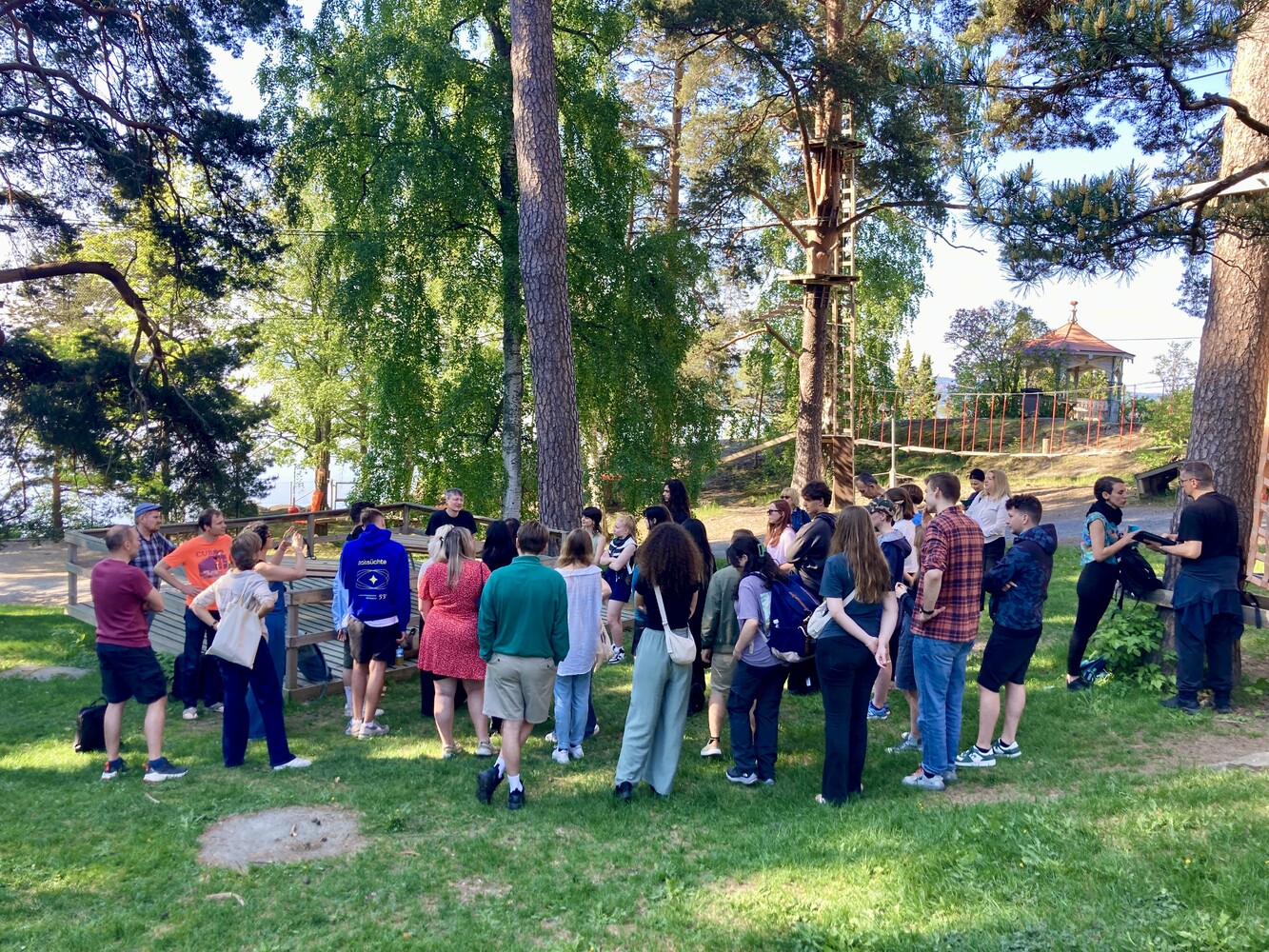Seeing the Green Camp’ and Data Fiction Workshop – Harnessing Data Storytelling for Sustainable Futures
LED BY // Nicole Loeser / IFAI Berlin and Prof. Angelica Boehm / Filmuniversity Babelsberg
23 May – 31 May 2024
The second annual camp of the EU project Green Education in Media (GEM) took place in the serene natural surroundings of the Varala Institute in Tampere, Finland. Themed “Seeing the Green – Data Storytelling for Sustainable Development,” it gathered nine institutional partners from six countries, with a particular focus on creating innovative data-driven narratives on sustainable agriculture and planet-friendly nutrition using global datasets. The outcomes ranged from short films, interactive media and artistic visualizations to augmented and virtual reality experiences.
About
Camp Module Overview
The camp involved collaboration between approximately 40 students, and 20 lecturers, aiming to tell visual stories based on environmental data. The focus was on harnessing data storytelling and information visualization to create sustainable futures. Set against the backdrop of Finnish nature in a multicultural and multidisciplinary setting, the workshop balanced between learning and leisure to provide an engaging and interdisciplinary learning experience for all participants.
Participants had the opportunity to engage in various specialized workshops, each focusing on a different aspect of data visualization and storytelling: Interactive Data Visualization, Artistic Data Visualization, Data in Move!, Data Fiction, and Virtual Reality.
Data Fiction Group – Highlights
The subgroup “Data Fiction” was led by Prof. Angelica Boehm from Filmuniversity Babelsberg, Germany, and Nicole Loeser from the Institute for Art and Innovation, Germany. The innovative workshop started with an introduction to Data Fiction and Data Storytelling, culminating in the development of an interactive walk-through experience by using the Art For Futures Lab incl. research, meditation and design sprint to develop different stations by each for a walk-through experience. It focused on sustainable food production’s environmental and health impacts, encompassing themes like water usage, sugar intake and related health issues, and food labeling.
The interactive walk-through experience created by the group included various engaging activities such as:
- A TikTok account (@Water_slay7) displaying positive 2050 news and a music video shot and edited in Tampere
- An app prototype for tracking sugar intake
- A guessing game on sugar content of food products
- A computer game centered on water consumption
- An artistic participatory demonstration on sugar weight comparison related to food products
The Data Fiction group successfully combined analog and digital elements to provide a tangible data research and science experience in an engaging manner. By blending creativity with data-driven narratives, the participants could exemplify how storytelling can be a powerful tool for raising awareness about sustainability issues. The collaborative efforts of all participants showcased the potential of data fiction in envisioning sustainable futures through innovative and immersive storytelling techniques.
Key Learnings for Students
Students participating in the workshop gained valuable insights into:
- Data Storytelling Techniques: Understanding the principles and techniques of data storytelling to convey complex environmental issues in an accessible and engaging manner.
- Interdisciplinary Collaboration: Working across disciplines to blend art, science, and technology in creating compelling narratives about sustainability.
- Practical Application of Data Visualization: Utilizing various data visualization tools and methods to create impactful visual stories that promote sustainable development.
- Critical Thinking and Creative Innovation: Encouraging creativity in approaching global challenges, fostering innovative solutions through multimedia storytelling.
- Sustainable Practices: Gaining knowledge about sustainable agriculture and nutrition, and understanding the broader implications of food production and consumption on the environment and health.
More about the Art For Futures Lab here


